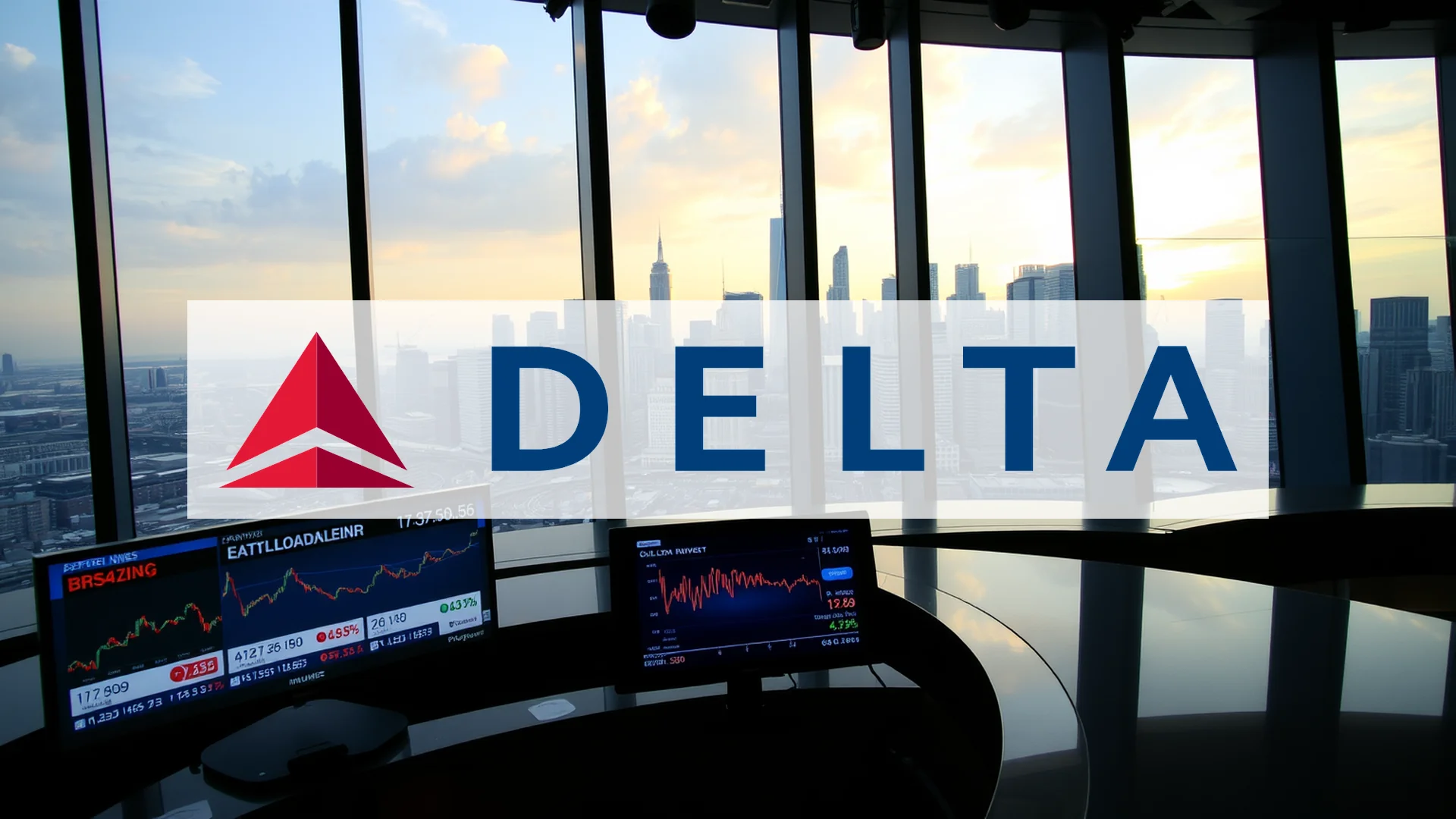Delta Air Lines confronts a significant challenge to its international operations following a U.S. government decision that dismantles a key partnership. The Department of Transportation (DOT) has revoked the antitrust immunity for the airline’s joint venture with Aeromexico, a move that will fundamentally reshape competitive dynamics on lucrative routes between the United States and Mexico starting January 1, 2026. This regulatory shift raises questions about how the carrier will navigate this disruption while simultaneously investing in long-term sustainable technology.
Investor Reaction and Market Performance
Despite the negative news, market participants have displayed notable composure. Institutional investor Assenagon Asset Management S.A. significantly increased its stake in Delta during the second quarter, boosting its position by 86.3% to approximately 450,000 shares valued at around $22 million. The stock itself demonstrated relative resilience, declining a modest 1.46% in Monday’s trading session. Technical indicators suggest the shares are slightly oversold, with an RSI reading of 32.6, while current trading near the €50 level—close to key moving averages—points to underlying stability.
Partnership Dissolution Alters Competitive Landscape
The DOT confirmed on September 15 its initial July ruling, terminating the immunized alliance that has been in place since 2017. The department cited anti-competitive interventions by the Mexican government, including the seizure of landing slots at Mexico City Airport, as the primary justification. Delta expressed “deep disappointment” with the outcome, warning of “significant harm” to U.S. jobs and consumers.
The expiration of antitrust protection will require Delta and Aeromexico to independently schedule and price their transborder flights beginning next year. This change could result in less coordinated flight times, increased operational expenses, and potential fluctuations in airfares. The joint venture served as a cornerstone of Delta’s Latin America strategy, securing the airline a 19.9% market share on routes between the U.S. and Mexico.
Should investors sell immediately? Or is it worth buying Delta Air Lines?
Strategic Pivot to Sustainable Aviation
Concurrently with this regulatory setback, Delta is advancing a separate long-term initiative. Just two days after the DOT’s announcement, the airline revealed a partnership with Maeve Aerospace. As the North American airline partner, Delta will contribute to the development of a hybrid-electric regional jet capable of carrying 80-90 passengers, with entry into service projected for 2033 at the earliest.
This strategic commitment underscores Delta’s focus on environmentally sustainable aviation and positions the company within the growing market for green aircraft technologies. Participation in programs like the “Sustainable Skies Lab” indicates that management is maintaining a long-term perspective despite immediate operational challenges.
Upcoming Quarterly Report in Focus
All attention now turns to October 9, when Delta is scheduled to release its third-quarter 2025 financial results. Investors anticipate clear communication regarding the airline’s strategy for managing the regulatory changes and insights into how new technological partnerships will influence its long-term trajectory. The central question remains whether the vision for a greener future can sufficiently counterbalance the loss of a highly profitable joint venture. The answer will likely determine the future flight path for Delta Air Lines’ stock.
Ad
Delta Air Lines Stock: Buy or Sell?! New Delta Air Lines Analysis from February 7 delivers the answer:
The latest Delta Air Lines figures speak for themselves: Urgent action needed for Delta Air Lines investors. Is it worth buying or should you sell? Find out what to do now in the current free analysis from February 7.
Delta Air Lines: Buy or sell? Read more here...













